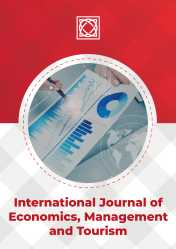THE CHALLENGES OF INTERNATIONAL RELATIONS IN THE POST-COVID ERA
DOI:
https://doi.org/10.46763/IJEMT2551117jKeywords:
diplomacy, multilateralism, geopolitical tensionsAbstract
The Covid-19 pandemic has significantly transformed international relations, exposing critical vulnerabilities in global cooperation frameworks. This paper explores the multifaceted challenges that have emerged in the post-Covid era, focusing on political, economic, security, and socio-cultural dimensions. The initial global response was marked by a surge in nationalism and isolationism, disrupting established multilateral systems and exacerbating geopolitical tensions, particularly between major powers such as the United States and China. Trust in international institutions, including the WHO and the UN, has declined, highlighting the urgent need for reform and stronger global coordination mechanisms. Economically, the pandemic caused widespread supply chain disruptions, increased unemployment, and widened inequality, compelling nations to reconsider their dependency on global networks. In terms of security, the crisis emphasized the importance of cybersecurity and health systems as integral components of national and global stability. Moreover, the pandemic catalyzed social and cultural shifts, with digitalization redefining communication, work, and education, while mental health and local resilience emerged as key priorities. The research underscores the necessity of revitalizing multilateralism and developing adaptive strategies for future crises. By analyzing the pandemic’s long-term impact on international relations, this paper advocates for stronger international solidarity, inclusive governance, and sustainable global policies. The findings aim to contribute to a deeper understanding of the post-Covid international order and provide strategic insights for building a more resilient and cooperative global community.

